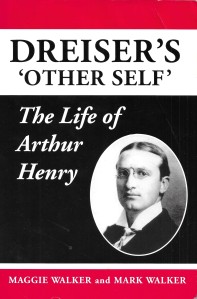“Observer; Baseball for Hitler”
By Russell Baker
The New York Times
June 18, 1996
Baseball turned its back on Adolf Hitler last week. As the team owners said in a formal statement, “When your business has troubles as bad as ours, who needs to mess around with Der Fuhrer?”
So saying, they persuaded Marge Schott, majority owner of the Cincinnati Reds, to give up control of her business. In a flagrant exercise of the First Amendment, Mrs. Schott had spoken well of the early Hitler.
One sports story reported that she had said “Hitler was good at first.” This sent me to the archives where I discovered that Hitler was no good at all at first, and not at second either.
Rudolf Hess’s memoir says, “The Fuhrer could have been a great shortstop if he hadn’t gone into politics,” but Hess was crazy as a loon when he wrote it.
A more reliable source, Hitler’s masseuse, wrote a book titled, “I Rubbed Hitler the Wrong Way,” which indicates he had very little interest in baseball. “One day while massaging Hitler’s arm,” she wrote, “the Fuhrer seemed in a light-hearted mood, so I ventured to speak to him as follows:
” ‘Do you know, mein Fuhrer, that if you were an American baseball pitcher what your pitching arm would be called by the scribes?’
” ‘Scribes? Scribes?’ he said. ‘Explain scribes to me.’
” ‘They are sportswriters,’ I said.
” ‘So,’ he said, ‘these scribes would call my pitching arm what?’
” ‘They would call it “the old soupbone,” ‘ I said.”
Hitler ended the conversation abruptly, telling the masseuse that when the Wehrmacht occupied America he would like to see a game from the best seat in Camden Yards, but that would have to wait until he finished conquering Russia.
Here is final proof of Hitler’s ignorance of baseball: Camden Yards was not built until 50 years later, and even then he couldn’t have got a decent seat unless he was a corporation. By then, of course, no scribe had called a pitching arm “the old soupbone” for 50 years, and no sportswriter had been called a scribe for 45.
Most of the Nazi leaders were hopelessly ignorant of baseball, as we discover in the Hitler file. Hermann Goring, being the great collector and chief looter in the Nazi hierarchy, apparently wanted a baseball signed by Babe Ruth.
In a note to Hitler the propaganda chief, Joseph Goebbels, wrote that Goring was writing to a woman in enemy America. Impressions in Goring’s desk blotter, said Goebbels, showed that a note had been sent to a New York woman named Babe Ruth.
Totally ignorant of baseball, Goebbels advised Hitler to turn Goring over to the Gestapo and explain his correspondence “with this American Mata Hari.”
Hitler, who was soft on Goring, was “delighted,” he wrote in a note to Eva Braun, to show his “superior knowledge of American culture to Goebbels.”
“I told him that Babe Ruth was the name of an American candy and that Hermann, who has a sweet tooth, was probably ordering some from New York,” Hitler wrote.
We now know, of course, what Goring was really up to. His gardener’s memoir, “Down the Primrose Path With Goring,” reports that he was often ordered to stand in a hay field for hours chasing fly balls Goring hit off a fungo bat. The gardener writes:
“He once said to me that Hermann Goring was not much more corpulent than the greatest batter in history. ‘What’s more,’ said Goring, ‘both of us are named Hermann.’
“I didn’t know then that Herman was only the second name of the famous Ruth and that it had only one ‘n,’ while Goring’s was his first name and had two ‘n’s.’ ”
Goring apparently hoped to meet Babe Ruth once the Wehrmacht occupied New York and to impress the Yankee slugger by smacking a few batting-practice pitches out of the park. Babe Ruth, he hoped, would be impressed enough to sign a baseball, thus making it unnecessary to loot the Baseball Hall of Fame.
The baseball owners’ distaste for Hitler reminds us that baseball and Adolf once had something in common. Hitler became furious because a black American sprinter, Jesse Owens, beat the flower of Aryan athletics in the 1936 Berlin Olympics. Such an embarrassment could not have happened that year to major league baseball owners. They simply didn’t let blacks play.
*****************************************************
Absolute genius (on Russell Baker’s part).
— posted by Roger W. Smith
March 2021

